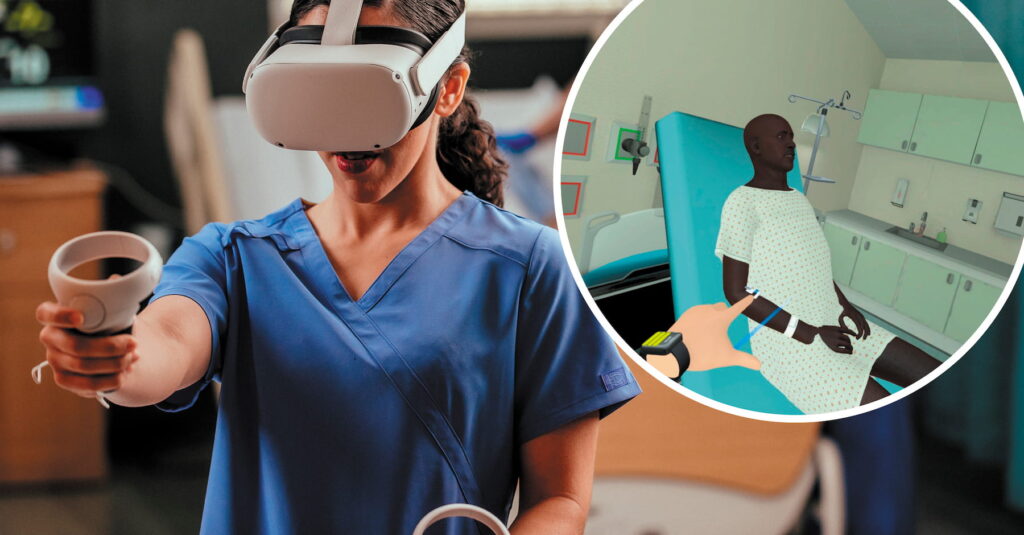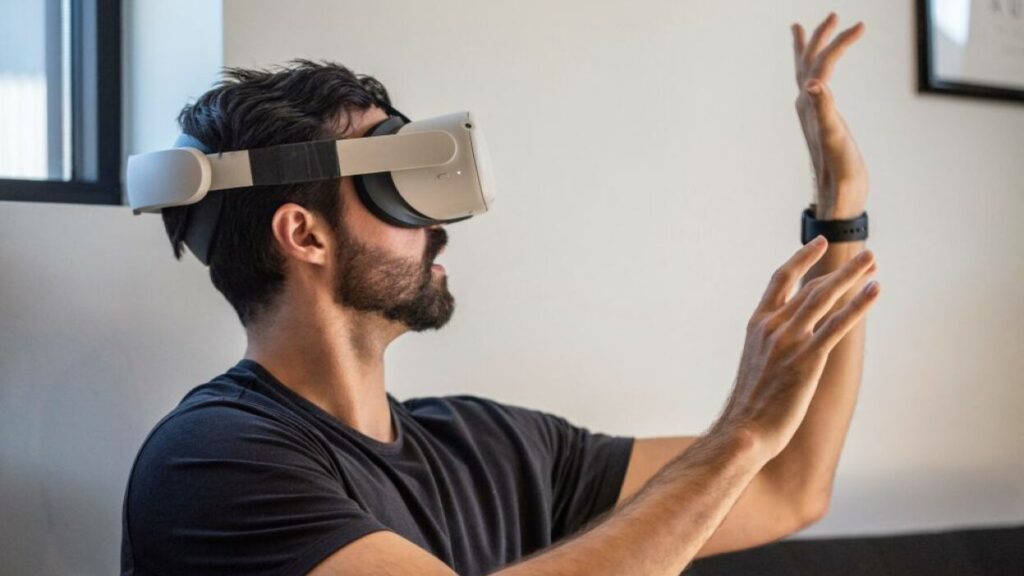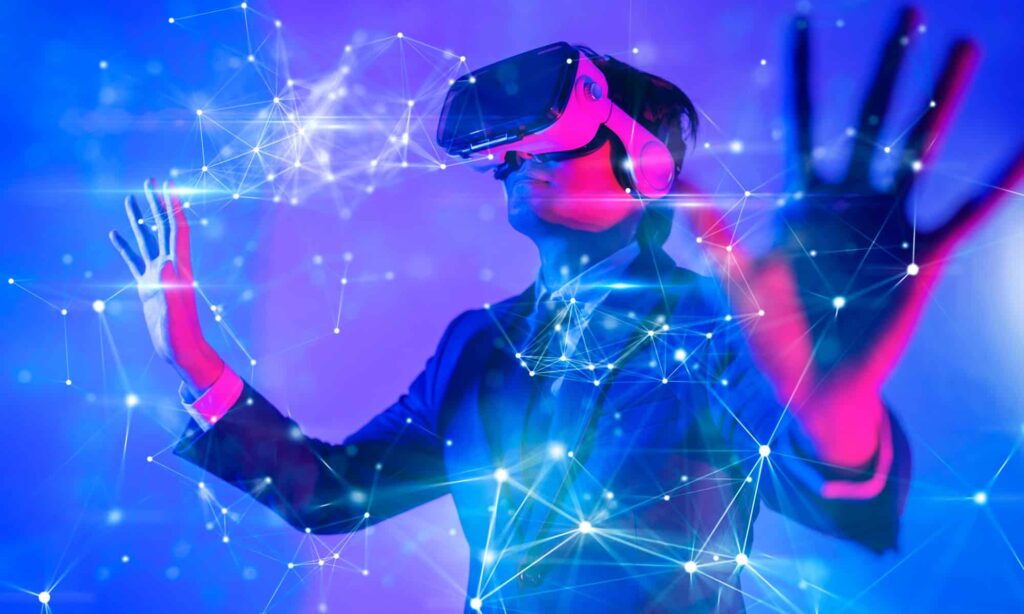Virtual Reality (VR) technology has come a long way since its inception, primarily associated with the world of gaming. However, its potential extends far beyond the gaming industry. In this article, we will explore the exciting future of virtual reality, delving into its diverse applications that promise to revolutionize various aspects of our lives.
Benefits Of Using Virtual Reality
Virtual Reality, once confined to the realm of science fiction, has become a tangible part of our lives. Beyond gaming, it is poised to reshape various industries, offering immersive experiences that were previously unimaginable.
The Evolution of Virtual Reality
The journey of VR technology began with primitive headsets and blocky graphics. Today, VR has evolved into a highly sophisticated and immersive experience, thanks to advancements in hardware and software.
Certainly, let’s dive deeper into some of the fascinating aspects of the future of virtual reality (VR) beyond gaming.
1. Education and Training

Virtual reality has opened up a new dimension in education and training. Traditional methods of learning often involve reading textbooks or watching lectures, but VR takes learning to a whole new level. Students can now step into historical events, witness complex scientific concepts in action, or even take virtual field trips to far-flung destinations.
Imagine studying astronomy by flying through the cosmos, exploring the surface of Mars, or dissecting a virtual human body in a lifelike simulation. VR makes learning engaging and interactive, catering to various learning styles. Moreover, in professional training, from military simulations to pilot training, VR provides a safe and cost-effective environment for practicing real-life scenarios without the risks.
2. Healthcare and Medical Advancements
The healthcare industry has embraced VR for its transformative potential. Surgeons can use VR to simulate surgeries before performing them on real patients, refining their skills and reducing the risk of errors. Patients suffering from chronic pain or undergoing rehabilitation can immerse themselves in therapeutic VR environments, distracting them from discomfort and aiding their recovery.
Phobias and post-traumatic stress disorders (PTSD) are also being treated with VR therapy. By gradually exposing patients to their fears in a controlled virtual setting, therapists can help individuals overcome these challenges.

3.Travel and Tourism
In a world where travel can be expensive and time-consuming, VR offers an innovative solution. It allows people to explore destinations they might never visit physically. From ancient wonders like the Pyramids of Egypt to the futuristic streets of Tokyo, VR tourism lets you experience the world’s beauty without leaving your home.
Additionally, the travel industry uses VR to give travelers a taste of their upcoming trips. Hotels, airlines, and tour companies offer immersive previews of their services, making it easier for customers to plan their journeys.
4. Social Interaction and Communication
The COVID-19 pandemic accelerated the adoption of virtual reality for social interaction. VR chat rooms, conferences, and virtual parties became a lifeline for those seeking connection while adhering to social distancing measures. In these virtual environments, you can meet and interact with people as if they were physically present.

5.Real Estate and Virtual Property Tours
House hunting has gone digital. Virtual property tours enable prospective buyers to walk through homes without physically visiting them. This saves time, money, and resources for both buyers and sellers. It’s especially valuable for international buyers who can explore properties from afar.
6. VR in the Workplace
Remote work is becoming the norm, and VR is making it more efficient and engaging. Virtual offices provide a sense of presence and collaboration that traditional video calls cannot match. Imagine collaborating with colleagues in a virtual conference room, sharing ideas on a virtual whiteboard, or attending a virtual trade show from the comfort of your home.
Challenges and Concerns
As VR technology progresses, it faces several challenges. Accessibility, cost, and the need for powerful hardware are significant hurdles. Privacy concerns, especially related to data collection and security, need to be addressed. Additionally, managing the potential for addiction or overuse of VR is an ongoing concern.
The Future of Virtual Reality: Predictions
Experts predict that VR will continue to evolve rapidly. We can anticipate more realistic graphics, enhanced haptic feedback, and even more immersive experiences. As VR becomes more accessible and affordable, it will likely become a standard tool in education, healthcare, and various industries, fundamentally altering the way we work, learn, and interact.

Conclusion
In conclusion, virtual reality is on the cusp of a revolution that extends far beyond the realm of gaming. Its applications are vast and promising, offering new opportunities for education, healthcare, travel, social interaction, and work. As the technology continues to mature, it’s an exciting time to explore the limitless possibilities of VR.
The future of virtual reality is exciting and limitless. As technology continues to advance, VR will touch every aspect of our lives, making it more immersive and interconnected than ever before.
FAQs
1. Is VR technology accessible to everyone?
VR technology is becoming more accessible, but cost and hardware requirements can still be a barrier for some.
2. Are there any health concerns associated with prolonged VR use?
Extended use of VR can lead to motion sickness and eye strain, but these issues are improving with newer VR systems.
3. How is VR changing the way we work?
VR is transforming remote work by creating virtual offices and enhancing collaboration among remote teams.
4. What are the privacy concerns with VR technology?
Privacy concerns in VR primarily revolve around data collection and potential misuse of personal information.
5. What is the next big breakthrough in VR technology?
The next big breakthrough in VR is expected to be in haptic feedback and more realistic sensory experiences, bringing us even closer to a true virtual reality.
In conclusion, virtual reality’s future is not limited to gaming; it’s a technology poised to redefine how we learn, work, socialize, and experience the world around us. As VR continues to advance, its applications will become even more diverse and integrated into our daily lives.
Also checkout our recent blogs: Blogsroom
if you are interested in IPO related content then make sure to check out ipohunts.
If you are Interested in cricket buzzers and updates then make sure to check out crikzone.
